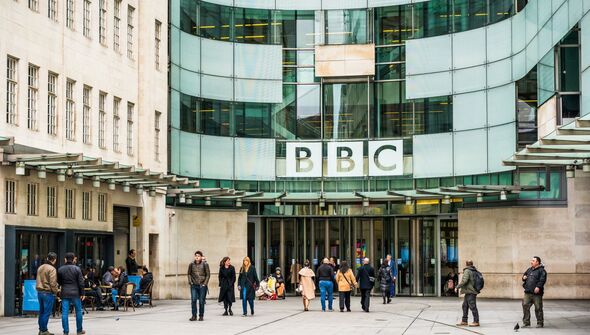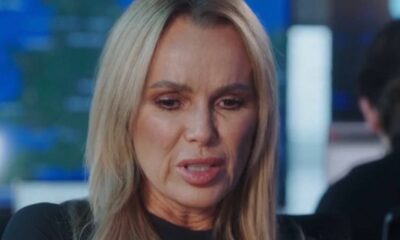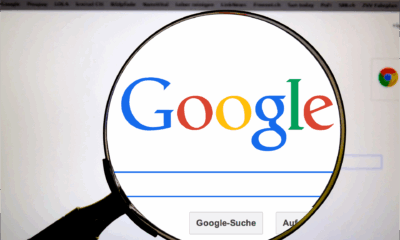Business
Calls Grow to Abolish BBC Licence Fee Amid Public Discontent

The debate surrounding the BBC licence fee has intensified, with many citizens arguing that the annual charge of £174.50 feels more like a tax on indifference than a fair payment for public service broadcasting. Critics claim that the model is outdated and no longer reflects the diverse media landscape of today.
Many individuals assert that they do not engage with BBC content, making the fee appear unjustifiable. With a plethora of streaming services such as Netflix, YouTube, and Spotify dominating the market, some argue that the BBC’s insistence on charging everyone for simply owning a television is an archaic practice. The sentiments expressed by the Campaign for Common Sense highlight this concern, suggesting that the BBC has strayed from its commitment to impartiality and balanced coverage.
Criticism of Content and Leadership
The BBC has faced accusations of promoting what some describe as a “steady diet of woke bias.” Critics argue that the corporation has lost touch with the values of the public it serves, failing to adequately represent the diverse viewpoints of the nation. This issue is compounded by concerns about the composition of its workforce. Many believe that the leadership remains a homogeneous group, primarily from middle-class backgrounds, which could hinder the organisation’s ability to connect with a broader audience.
In response to these criticisms, the BBC has committed to ensuring that by 2027, a quarter of its staff will come from low socio-economic backgrounds. Nevertheless, observers note that the leadership team still predominantly comprises individuals from similar educational and social backgrounds, raising questions about true inclusivity within the organisation.
The call for a change in the licence fee structure is not an argument for the abolition of the BBC entirely. Rather, advocates suggest that the public should have the option to subscribe on a monthly basis if they wish to access the service, allowing those who do not engage with its offerings to opt out. As the media landscape continues to evolve, this proposal aims to align the BBC’s model with contemporary consumer habits.
Broader Issues in Society
The discourse surrounding the BBC licence fee is part of a broader conversation about societal values and the role of institutions in modern life. The recent actions of some individuals, such as Samuel Williams, a student at Oxford University, have also sparked debate. Williams was filmed making inflammatory remarks related to the Israeli-Palestinian conflict, which many have condemned as inappropriate and dangerous. Such incidents have highlighted the need for responsible discourse, particularly among those in influential positions.
In the realm of popular culture, figures like Jennifer Aniston have emerged as advocates for health and fitness, presenting a counter-narrative to trends that glorify unhealthy lifestyles. Aniston, at the age of 56, continues to inspire many with her commitment to well-being.
Meanwhile, the troubling case of former musician Ian Watkins, who died in prison last week, has prompted discussions around justice and accountability. Watkins, convicted of severe crimes against children, does not evoke sympathy from the public, and his demise marks a definitive end to a dark chapter in British music history.
The government has also made headlines with its proposal requiring migrants to demonstrate English proficiency at an A-Level standard. While the intention may be to promote integration, critics argue that setting such high expectations is impractical and often fails to address the underlying challenges within the immigration system.
As these issues unfold, the need for a comprehensive review of the BBC’s funding model appears increasingly urgent. The dialogue surrounding the licence fee and public service broadcasting is likely to continue, reflecting the changing dynamics of media consumption and public expectations.
-

 Entertainment3 months ago
Entertainment3 months agoAnn Ming Reflects on ITV’s ‘I Fought the Law’ Drama
-

 Entertainment4 months ago
Entertainment4 months agoKate Garraway Sells £2 Million Home Amid Financial Struggles
-

 Health3 months ago
Health3 months agoKatie Price Faces New Health Concerns After Cancer Symptoms Resurface
-

 Entertainment3 months ago
Entertainment3 months agoCoronation Street’s Carl Webster Faces Trouble with New Affairs
-

 Entertainment3 months ago
Entertainment3 months agoWhere is Tinder Swindler Simon Leviev? Latest Updates Revealed
-

 World2 weeks ago
World2 weeks agoBailey Announces Heartbreaking Split from Rebecca After Reunion
-

 Entertainment4 months ago
Entertainment4 months agoMarkiplier Addresses AI Controversy During Livestream Response
-

 Entertainment2 weeks ago
Entertainment2 weeks agoCoronation Street Fans React as Todd Faces Heartbreaking Choice
-

 Science1 month ago
Science1 month agoBrian Cox Addresses Claims of Alien Probe in 3I/ATLAS Discovery
-

 Health4 months ago
Health4 months agoCarol Vorderman Reflects on Health Scare and Family Support
-

 Entertainment4 months ago
Entertainment4 months agoKim Cattrall Posts Cryptic Message After HBO’s Sequel Cancellation
-

 Entertainment3 months ago
Entertainment3 months agoOlivia Attwood Opens Up About Fallout with Former Best Friend





















